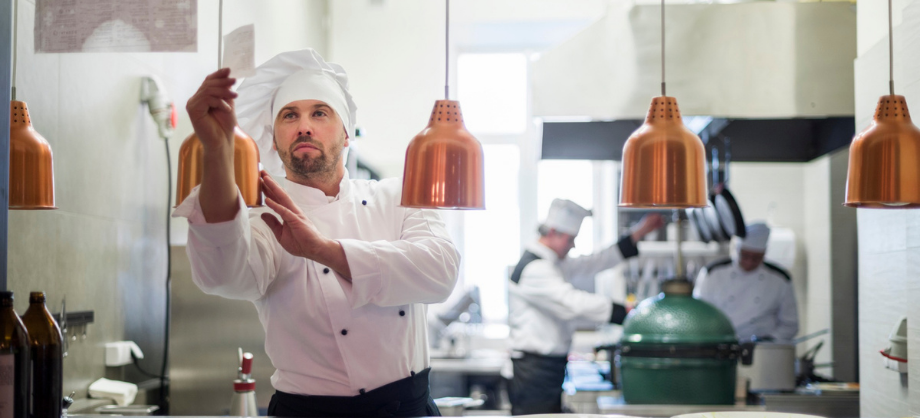It’s enough to make any restaurateur weep: just as the diners return, the staff disappear. And then along comes the ‘pingdemic’ to make it all worse.
On ‘Freedom Day’ – July 16 – the Office for National Statistics reported that the hospitality industry had 100,000 staff vacancies between April and June. That’s about 20% higher than the levels before the pandemic.
And that’s been exacerbated by the huge number of absences of staff being advised to self-isolate by the NHS app. For many restaurants, there’s been no choice – something has had to give.
As North East chef patron Alex explains: “We’ve taken the decision to close three nights a week during July and August because our kitchen team are just about at breaking point, and the front of house staff are nearly as bad.
“What’s making things worse is that the competition for staff means other restaurants are poaching away our chefs by offering them huge sums of money.”
London Eater magazine reported in June that many London restaurants had already cut their hours – but warned the shortage could be long-term, because many hospitality workers have left the industry for easier working conditions.
So what 3 things do you need to do right now?
1. Maximise efficiency in your operations
2. Match your staffing levels to customer demand
3. Create working conditions that encourage staff retention and make recruitment easier.
1. Maximise efficiency in your operations
Built into good restaurant epos software are labour management systems that provide important support to your operations – but there’s also a lot more that can help you get the most out of every member of staff.
For instance, the epos system will enable customers to make online bookings, which removes the need for staff to answer the phone. Graphical table plans accessible on an iPad also make it quicker and easier to seat customers without rushing to find the paper diary.
One of the biggest time-savers epos software provides for serving staff is tableside ordering and payment. Taking orders on an iPad or handheld device (or even letting diners self-service) means no running to the kitchen – the order is sent directly there so preparation can begin immediately. No problem with human error creeping into the order, either.
Payment at tableside also means no-one has to waste their time standing by a till, and customers appreciate the convenience.
It adds up to a lot of time saved, when your staff can be engaging with customers and upselling.
2. Match your staffing levels to customer demand
This is where the labour management system that’s part of your epos is more valuable than gold dust.
The labour management system captures crucial data that identifies precisely when your restaurant is busy and quiet, and also makes well-supported forecasts that help you work out rotas that work.
It’s not a replacement for your instinct, of course, but a labour management system does take away an element of guesswork. And if you do have to decide to reduce hours or close on certain days, the labour management system gives you concrete information to work with.
3. Create working conditions that encourage staff retention and make recruitment easier
This can be a tricky area for the hospitality industry, which has traditionally been high-pressure. Some recent high-profile scandals about the treatment of restaurant staff have not helped the business in its attempt to be an attractive employer.
But using a labour management system to underpin a supportive and responsive working environment can really help your restaurant build its reputation as a great place to work.
The measures we’ve just mentioned – reducing all the running around, making sure the right number of staff are on at the right time – create a well-organized atmosphere where staff are comfortable. It also makes for happy customers, which means waiters don’t have to deal with complaints.
In addition, if you can create space in the day with your labour management system, it allows for training so your team feel they are gaining some personal development. That’s always good for morale and staff retention.
Conclusion
Hospitality has always been a tough business, but the last year and a half have been monstrous. As ever, though, the industry is applying all of its innovative and creative skills to the problem, and will no doubt eventually overcome them.
But at times when staff are expensive and hard to get, it makes sense to protect them, treasure them and give them a sustainable workload. Diners also appreciate the good service that only contented staff can provide.
So now’s the time to make the most of your epos software and the labour management capabilities contained in it. It’s one of the keys to surviving his latest crisis to hit the industry – and one that will stand you in good stead for the future.
















